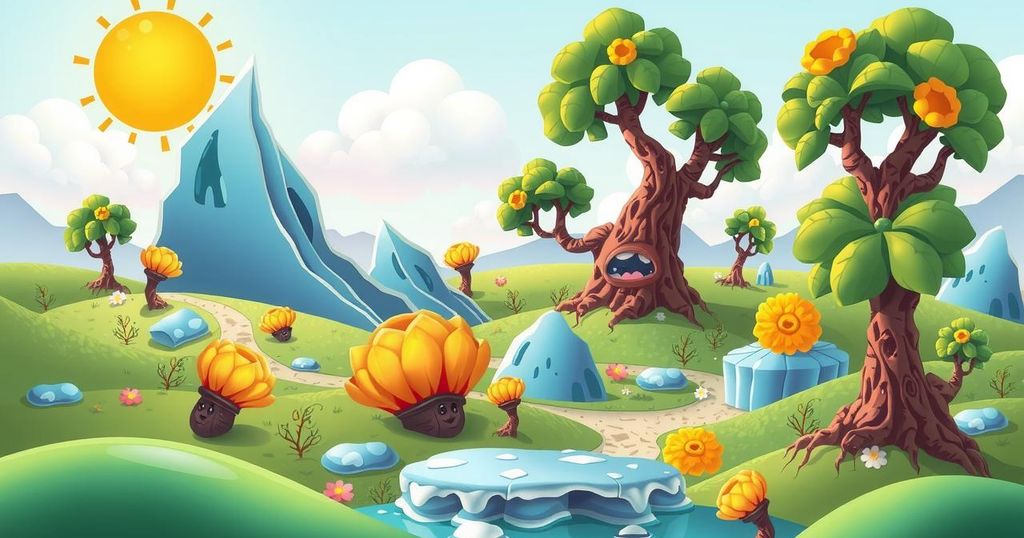14 Bizarre Consequences of Climate Change: Finding Humor Amidst Despair

This article discusses the bizarre consequences of climate change, emphasizing the use of humor to cope with eco-anxiety. It presents a list of unusual effects, including increased rat populations, altered baseball performance, and surprising animal hybrids, while encouraging advocacy through laughter and engagement in Earth Action Day activities.
Climate change is challenging to comprehend, prompting some to utilize humor as a coping mechanism amidst fears of ecological disaster. Research indicates that laughter can alleviate both physical and mental strains associated with eco-anxiety. In recognition of National Laugh Day, this article presents an entertaining list of unusual repercussions resulting from global warming.
1. A Croaking Chorus: Puerto Rico’s coquí frogs are diminishing in size, yet their mating calls have grown louder and higher-pitched, creating an unintended nature opera.
2. Baseballs Are Going, Going… GONE!: A 2023 study reveals that global warming diminishes air density, facilitating more frequent home runs in Major League Baseball by up to 10% by 2100.
3. A Condiment Crisis: Extreme weather patterns are adversely affecting agriculture, leading to a chili shortage that impacts hot sauce production and flavor diversity.
4. City Rats Are Thriving, and We Are Not: Urban rat populations are skyrocketing as warmer temperatures extend their breeding seasons, while many face existential concerns.
5. Lions & Tigers & … Grolar Bears? Oh My!: Climate change is prompting creative animal mating, resulting in hybrid species such as grolar bears and coywolves due to habitat loss.
6. The Invasion of the Jellyfish: Marine heatwaves are causing jellyfish populations to migrate, leading to a 32% rise in sightings in UK and Irish waters in 2023.
7. Beware of Shark-Infested Waters: Increased sea temperatures are pushing sharks into unprecedented areas, justifying some swim-related fears, albeit encounters remain rare.
8. Withering Wine Grapes: Extreme heat and wildfires are altering the taste of wine, with some grapes developing a sweet, raisin-like flavor due to accelerated ripening.
9. Satellites Are Speeding Up: Carbon emissions are contracting the thermosphere, reducing drag on satellites, leading to increased speeds and potential collisions affecting communication services.
10. Aquatic Anosmia: Ocean acidification impacts fish sense of smell, complicating their navigation, food acquisition, and predator evasion, akin to swimming blindfolded.
11. Who Dimmed the Lights?: Warmer seas are diminishing low-lying cloud coverage, exacerbating climate change while cloud reductions contribute to a gloomy Earth atmosphere.
12. Bless You!: Longer spring seasons have escalated pollen production, resulting in a 21% increase in pollen season from 1990 to 2018, aggravating allergies.
13. Mummy-Hungry Bacteria: Increased humidity has allowed bacteria to ruin South American Chinchorro mummies, causing them to deteriorate significantly.
14. Trees Are Growing Faster (But That’s Not Necessarily a Good Thing): Some European forests are growing at 70% accelerated rates due to climate change, which benefits paper industries but disrupts ecosystem balance.
Laughter can be a profoundly effective coping strategy, providing a means to address grave issues with levity. Evidence suggests humor promotes receptivity to serious concerns, facilitating meaningful discussions on climate change. At EARTHDAY.ORG, individuals are encouraged to use these peculiar facts to enhance climate advocacy efforts. Engaging in Earth Action Day Roundtable activities allows for positive contributions toward environmental change.
In summary, the article humorously highlights the strange and often alarming consequences of climate change, illustrating how laughter can serve as a coping mechanism in the face of adversity. The list encompasses various ecological oddities, from biodiversity impacts to altered agricultural outputs, emphasizing the urgent need for awareness and action. As individuals respond to eco-anxiety, using humor may foster receptiveness to critical discussions about environmental issues, encouraging collective participation in advocacy efforts.
Original Source: www.earthday.org






